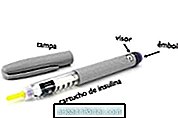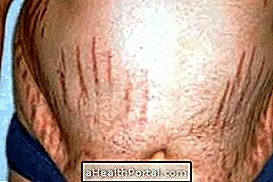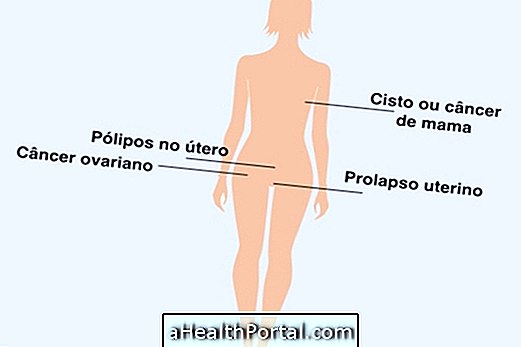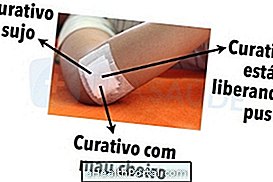Therapy with drugs, treatment with radioactive iodine capsules or surgery for thyroid withdrawal are the options that are available for the treatment of hyperthyroidism. The treatment of this disease is not certain or linear because it depends on the age of the patient, the severity of the disease and the intensity of the symptoms presented.
Hyperthyroidism is caused by a disturbance in the functioning of the thyroid gland, which causes it to function exaggeratedly, releasing hormones into the body in a much larger amount than expected. Thus, treatments for hyperthyroidism can be done with:
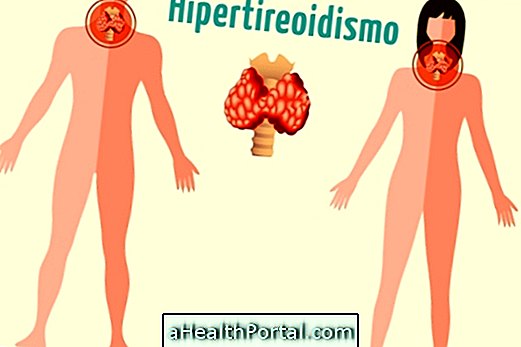
1. Remedies for Hyperthyroidism
Remedies such as Propylthiouracil, Propylracil, Methimazole or Tapazole are used to treat hyperthyroidism as they are responsible for inhibiting the production of thyroid hormones, thus helping to stabilize these hormones in the bloodstream.
The doses to be used of these remedies are not fixed and should be indicated by the physician, as they depend on the patient's response to the treatment and the side effects felt. Thus, along the course of treatment, dose adjustments must be made over time, in which the physician assesses the side effects and, based on this information, decides whether to maintain, increase or lower the dose of the medicine. Learn more about the remedies that can be used in treatment in Remedies for Thyroid.
To evaluate if the medicine is in the right dose and is having the desired effect, blood tests will be ordered to evaluate TSH, T3 and T4 hormone levels in the body, and the right dose of drugs can be achieved within 6 to 8 weeks of treatment.
2. Treatment with radioactive iodine
Another treatment option is the treatment with radioactive iodine, which consists of taking capsules containing radioactive iodine. This method of treatment will destroy the thyroid tissue, thus destroying the thyroid, since this when found to be unregulated is harmful to health.
This is a definitive treatment method, which makes it necessary to take hormones for the rest of life, since there is no longer a functional thyroid that makes its production. This type of treatment is contraindicated in cases of pregnancy or for women who are breastfeeding.
Often only 1 dose of radioactive iodine may be sufficient to treat hyperthyroidism, but there may be cases where it is necessary for the physician to prolong the treatment for some time.
3. Thyroid Removal Surgery
The surgery for removal of the thyroid gland is another treatment option and is also definitive, especially indicated in cases where the other treatments did not result or when there is the presence of nodules, exaggerated increase of the thyroid or cancer. This surgery can be total or partial and the difference is based on whether the thyroid gland is removed in whole or only part.

The recovery of the surgery is very simple, and it is then only recommended to avoid making efforts not to cause swelling or bleeding at the cutting site. Learn more about how this surgery is done in Thyroid Surgery.
Here's what you can eat on a day-to-day basis to control hyperthyroidism in the following video:


